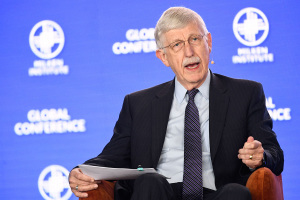2012 to Be a 'Nightmare' for China's Underground Churches?
Although the year 2011 saw the greatest number of violations of human rights in China since the Tiananmen Square protests of 1989, watch dog organizations have no good news for the New Year, as some groups insist 2012 may be even worse.
On Jan. 1, more than 10 policemen led by the vice head of the local Public Security Bureau stormed into the home of Lou Yuanqi, one of the house church leaders in Huocheng County in Xinjiang (north-western China), according to information provided by Human Rights in China (HRIC), one of several human rights organizations monitoring persecution of Chinese citizens, including religious minorities.
No great damage was done and the church leader and his wife, present during the raid, are now fine. However, the incident was clearly meant to intimidate Lou as the leader of a house church – an institution detested by the Chinese communist government, according to reports from HRIC.
"Given leadership transition in fall of 2012 we do expect a much harsher year, even more so than 2011, although 2011 already marked the worst in terms of religious freedom, human rights, and rule of law in two decades," Bob Fu, founder of ChinaAid, told The Christian Post recently.
ChinaAid declared recently that 2011 was the "year of political and religious persecution" in China. One of the reasons for that is the Arab Spring (or the Jasmine Revolution), which moved the state to intensify the crackdown on churches and prominent Christians, which started in 2010 and lasted for the whole of 2011.
The Chinese government cracked down on churches in the second half of 2010 following two events: the awarding of the Nobel Peace Prize to Chinese dissident Liu Xiaobo and the convening of the Lausanne Congress on Global Evangelization, to which more than 200 delegates from mainland Chinese house churches were invited, according to ChinaAid's annual report. The former was a political event and the latter a religious one, but both had a profound impact on human rights and religious freedom in China, according to the report.
In addition, a recent reason for even more persecution is the influence of unrest from the Arab Spring protests that erupted in Northern Africa in the winter of 2010 and spread throughout countries in the region and through the Middle East, ChinaAid spokesperson Mark Shan told The Christian Post recently.
ChinaAid recently published a list of the worst cases in persecution of Christians in the past year. Among those listed, is a 2011 case involving Beijing Shouwang Church, a well-known house church with more than 1,000 members who were forced to hold their worship services outdoors, the agency reported. The government's persecution of the church has lasted for 38 weeks nonstop and is ongoing, ChinaAid claims.
Still, some experts in China are careful about predicting an increase in church persecution in 2012. At least the government will probably not do anything too drastic and attention-grabbing, like raiding several churches at the same time, according to experts.
"Officials want to get promoted in the 18th Party Congress and nobody wants to risk creating a scene in case there are strong reactions from the people," Liang Jinglu, a human rights defender in China, told HRIC recently.
Occasional raids and removing leaders one by one seem to be the technique the government prefers. The state is not going to crack down on house churches in one national raid, Liang told the human rights group. Instead, he believes, it will do so gradually. The authorities will not pursue a harsh crackdown on house churches for fear of a strong reaction, as well as because of the presence of many other social conflicts currently going on in the nation, according to Li Dunyong, a human rights lawyer in Beijing.
Meanwhile, the general outlook for all religions looks quite bleak in China. On Dec. 19, the Minister of the United Front Work Department of the Central Committee of the Communist Party of China, Zhu Weiqun, published an article titled "Communist Party Member Should not Believe in Religion" in the state's biweekly official journal called Seeking Truth, an HRIC representative told CP.
The article read: "the principled stance regarding forbidding members from believing in religion has been consistent and has not changed an iota," according to a translation provided by HRIC.
It further urged party members "to unite the patriotic religious groups to resist various infiltrations from overseas hostile forces which use religion as a tool."
"Allowing party members to believe in religion would reduce the party's ability to fight separatism particularly under the circumstance where overseas hostile forces are using religion as an approach to perpetrate separatism activities in some minority areas," the article read.
After the Communist victory in 1949, missionaries from the West were expelled from China, but Christianity was permitted in state-sanctioned churches, so long as they gave their primary allegiance to the Communist Party. While unofficial churches have been feeling the pressure from the government as unwanted entities to be brought under control, state-sanctioned churches have reportedly been spreading and overflowing in recent years.



























